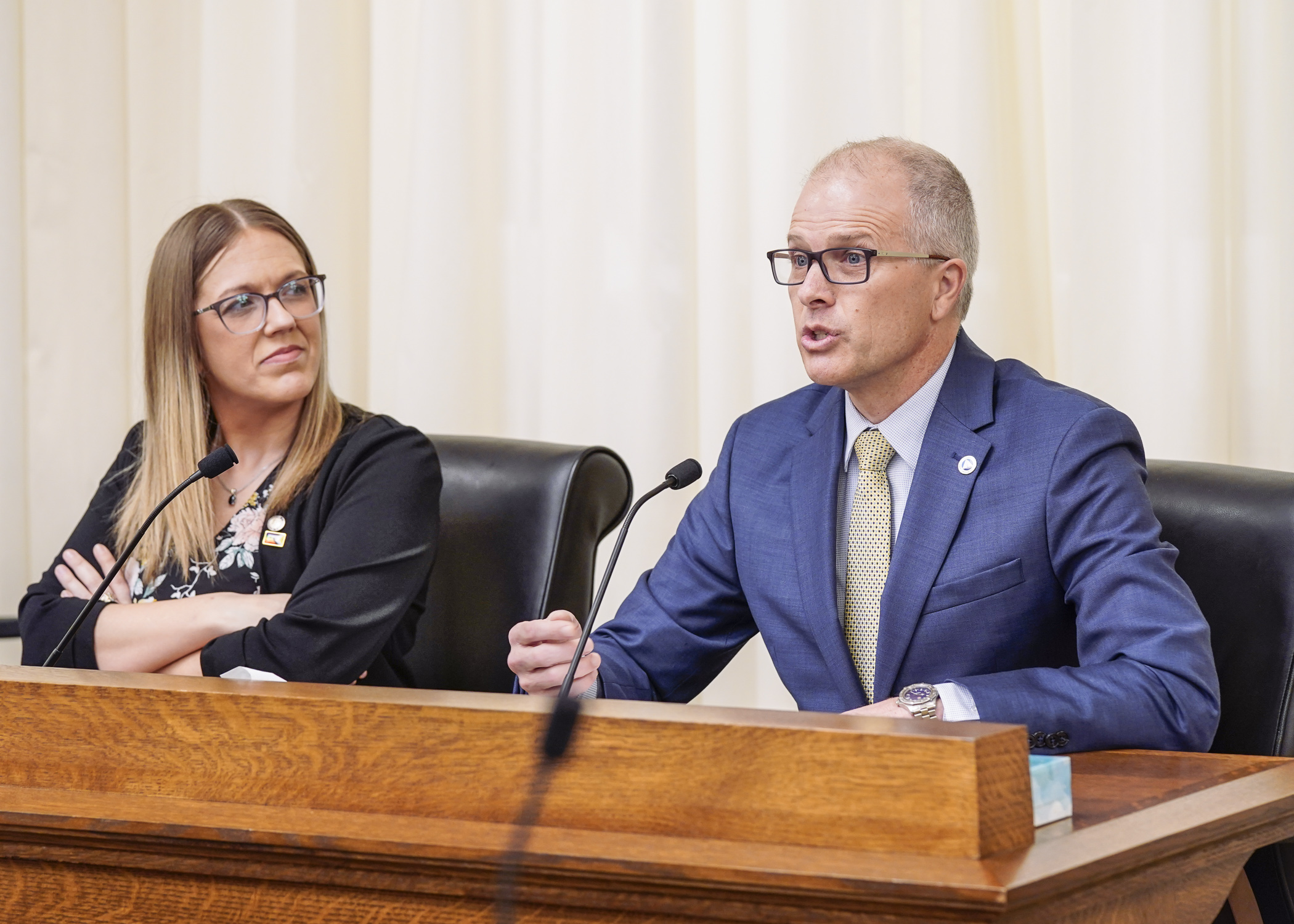Transportation panel greenlights bill that could charge developers for street improvements

Each new home built in a community adds an average of 10 vehicle trips per day. According to Prior Lake City Manager Jason Wedel, that could mean 66,000 new trips every single day if available land in his city is developed.
That increase in traffic would require street upgrades, such as new signals and turn lanes.
Currently, those costs have to be paid by a community’s existing taxpayers or the city must forgo new development.
A fairer system would have new developments pay for the added capacity, ensuring growth pays for growth, said Rep. Jessica Hanson (DFL-Burnsville).
Taxpayers owning modest homes in her community are not keen on paying for homes they couldn’t hope to afford, said Hanson, who sponsors HF1402 that would allow cities to charge a street impact fee for new developments.
The bill was approved Thursday by the House Transportation Finance and Policy Committee on a 9-6 party-line vote and now goes to the House State and Local Government Finance and Policy Committee.
Under the proposed legislation, municipalities would be allowed to impose a fee based on buildable acreages, a development’s impact on the transportation system or the city’s transportation plan.
Documented fees for new development help protect current taxpayers and ensure growth is planned and connected, said Jordan Mayor Mike Franklin.
Opponents argue the bill ignores the increase in tax base that comes with new developments. It would mean only new residents pay for street improvements that benefit the entire community, and it would add another roadblock to development in the state when other regions are reducing impediments.
Moreover, opponents say, homebuyers would end up paying the fee on their mortgage at 7% interest and may move before street improvements are made.
Rep. Shane Hudella (R-Hastings) said the street impact fee would amount to a tax imposed on future residents with no say in the matter. He unsuccessfully offered an amendment that would trigger a referendum when the imposed fee is more than $1 million.
Related Articles
Search Session Daily
Advanced Search OptionsPriority Dailies
Speaker Emerita Melissa Hortman, husband killed in attack
By HPIS Staff House Speaker Emerita Melissa Hortman (DFL-Brooklyn Park) and her husband, Mark, were fatally shot in their home early Saturday morning.
Gov. Tim Walz announced the news dur...
House Speaker Emerita Melissa Hortman (DFL-Brooklyn Park) and her husband, Mark, were fatally shot in their home early Saturday morning.
Gov. Tim Walz announced the news dur...
Lawmakers deliver budget bills to governor's desk in one-day special session
By Mike Cook About that talk of needing all 21 hours left in a legislative day to complete a special session?
House members were more than up to the challenge Monday. Beginning at 10 a.m...
About that talk of needing all 21 hours left in a legislative day to complete a special session?
House members were more than up to the challenge Monday. Beginning at 10 a.m...